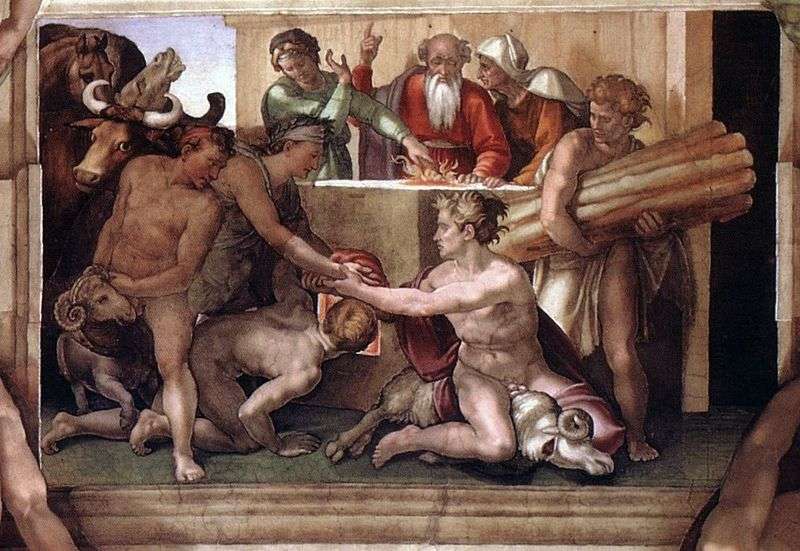
Michelangelo Buanorroti in the last year of his work in the chapel wrote a wonderful fresco “Sacrifice of Noah.” The images of this creation convey to the viewer the mournful tragic notes of everything that is happening.
Shocked by the large number of victims in the turbulent flow of the Flood, filled with a sense of nobility for their salvation, Noah and his family are in a hurry to make a sacrifice to the Lord God. If in the characters that are placed in the formwork, there is a mood of rest, quiet sadness, contemplation, then in the lunettes the heroes are seized with anxiety, anxiety. The state of rest dramatically turns into stupor and stasis.
In writing the ancestors of Christ, where the feelings of kinship and inner solidarity seemed to be appropriate, Michelangelo conveyed to the viewer completely different experiences.
One part of the participants of this scene is covered with cold indifference, the other part experiences feelings of mutual estrangement, outright hostility and mistrust. In some characters, for example, a mother with a child and an old man with a staff, grief is gradually replaced by tragic despair.
Thanks to all the efforts of Noah, God promised him no more punishment, thus, humanity. From now on, the land will be saved for fire. And Noah made a sacrifice to the Lord; And he took from every livestock of the purest and of all the birds clean, and he brought them for a burnt offering on the altar.
And the Lord felt a pleasant fragrance, after which he said in his heart: I will never again curse the whole earth for a man, because the plans of the human heart are evil from his youth and foolishness; and I will no longer strike all living things, as I have done before: from now on and all the days of the earth the harvest and sowing, heat and cold, winter and summer, night and day will not cease.
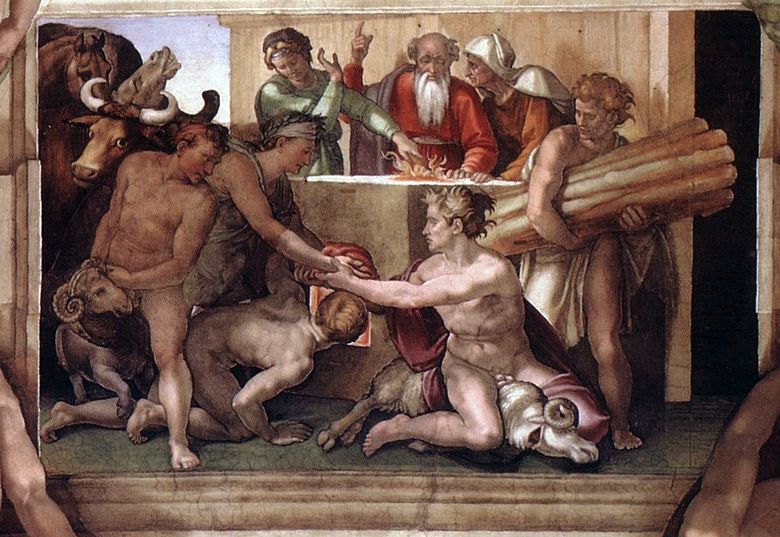 Le sacrifice de Noé – Michelangelo Buanarrotti
Le sacrifice de Noé – Michelangelo Buanarrotti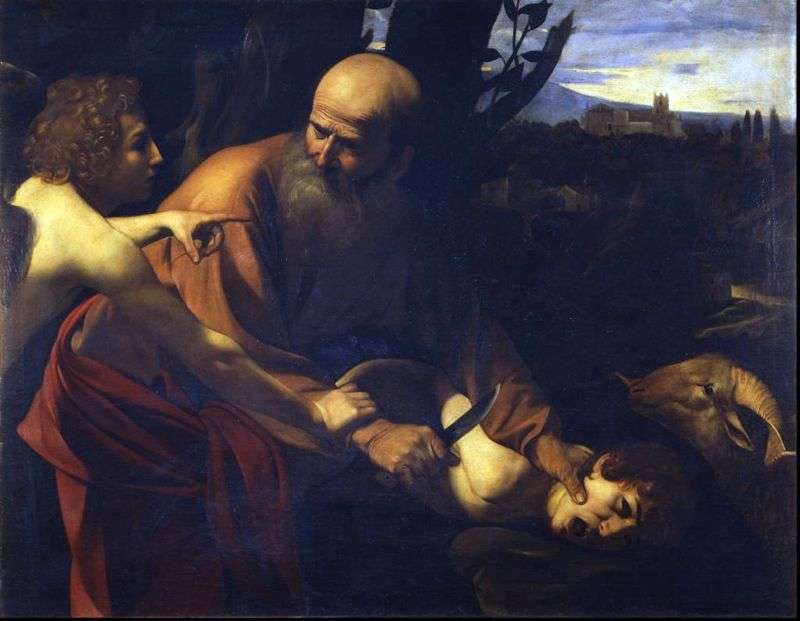 The sacrifice of Isaac by Michelangelo Merisi and Caravaggio
The sacrifice of Isaac by Michelangelo Merisi and Caravaggio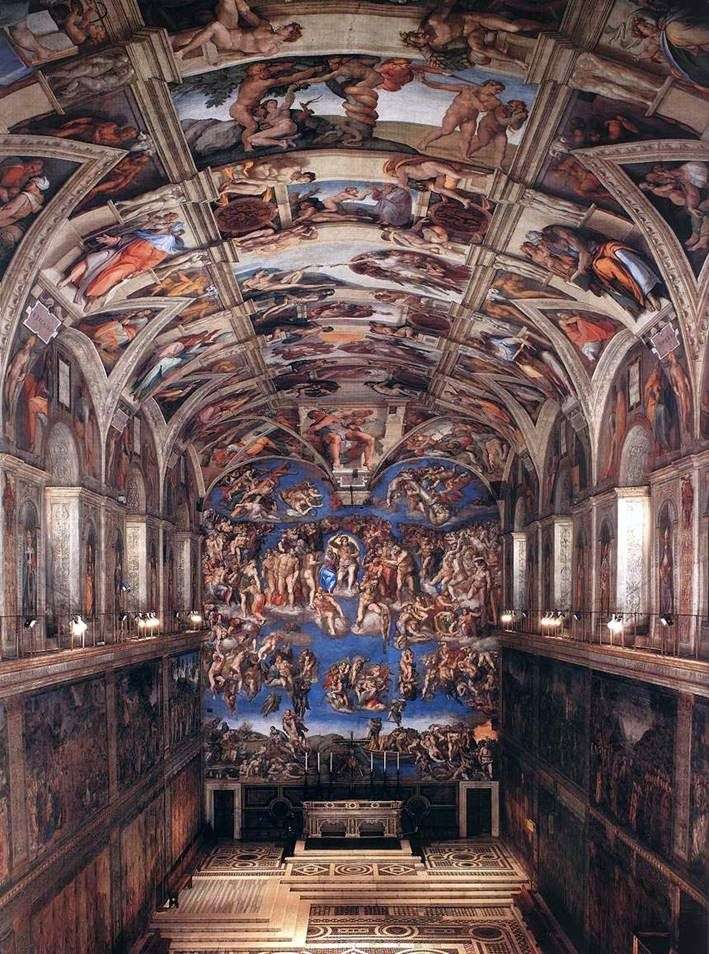 Interior of the Sistine Chapel by Michelangelo Buanarrotti
Interior of the Sistine Chapel by Michelangelo Buanarrotti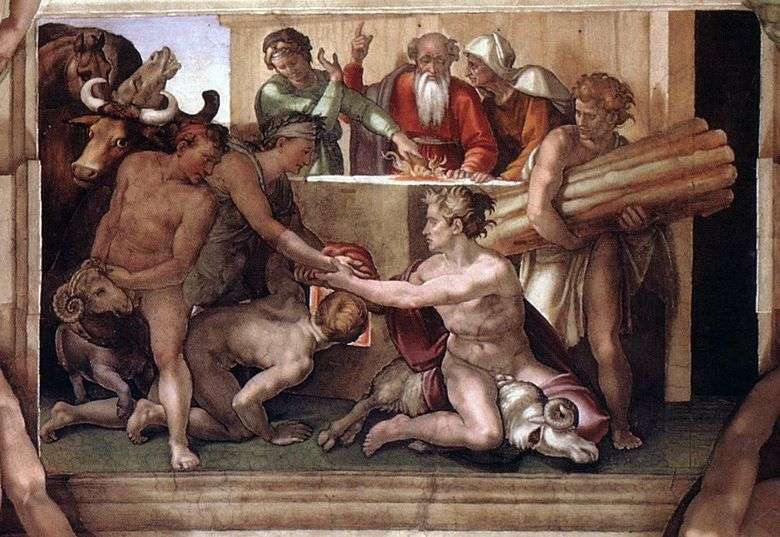 Sacrificio de Noé – Michelangelo Buanarrotti
Sacrificio de Noé – Michelangelo Buanarrotti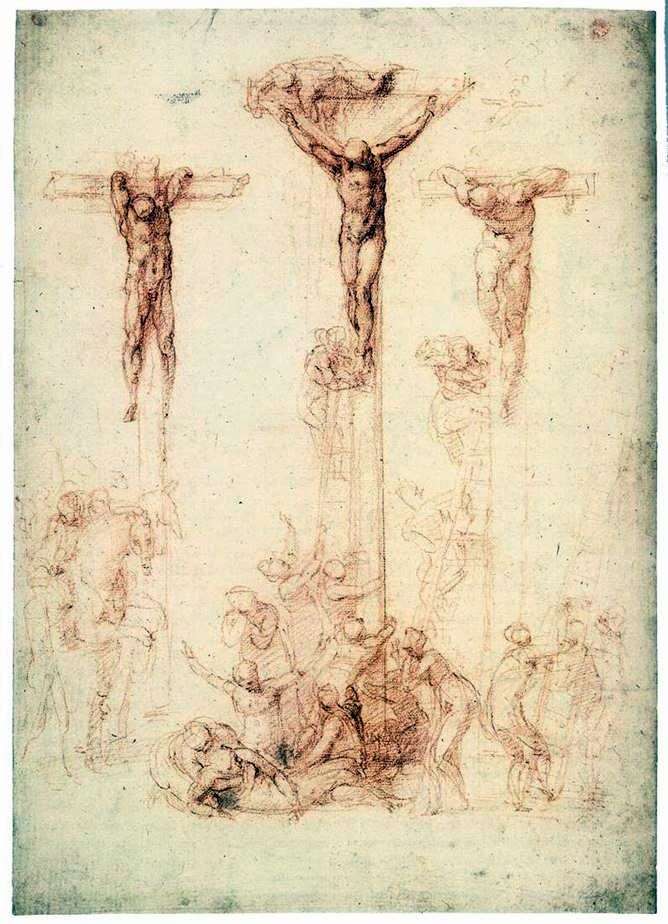 Etude with Three Crosses by Michelangelo Buonarroti
Etude with Three Crosses by Michelangelo Buonarroti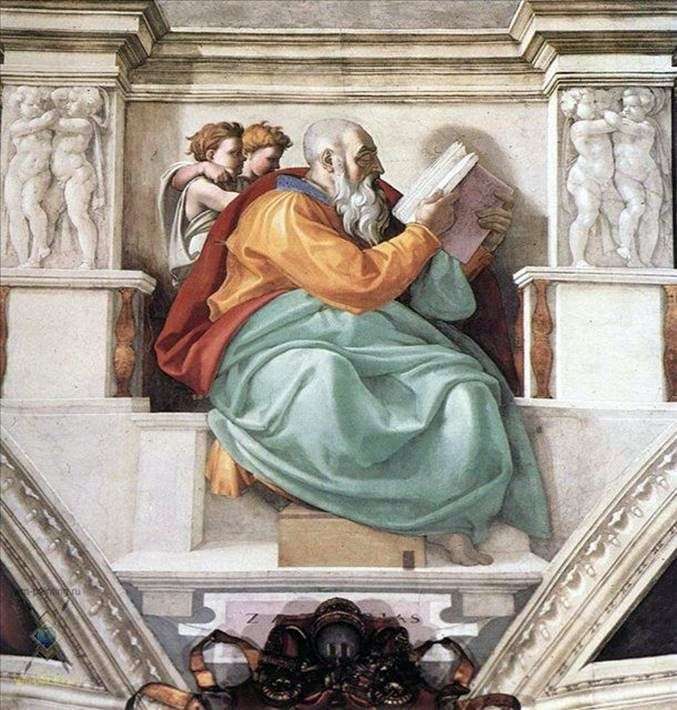 Zechariah by Michelangelo Buanarrotti
Zechariah by Michelangelo Buanarrotti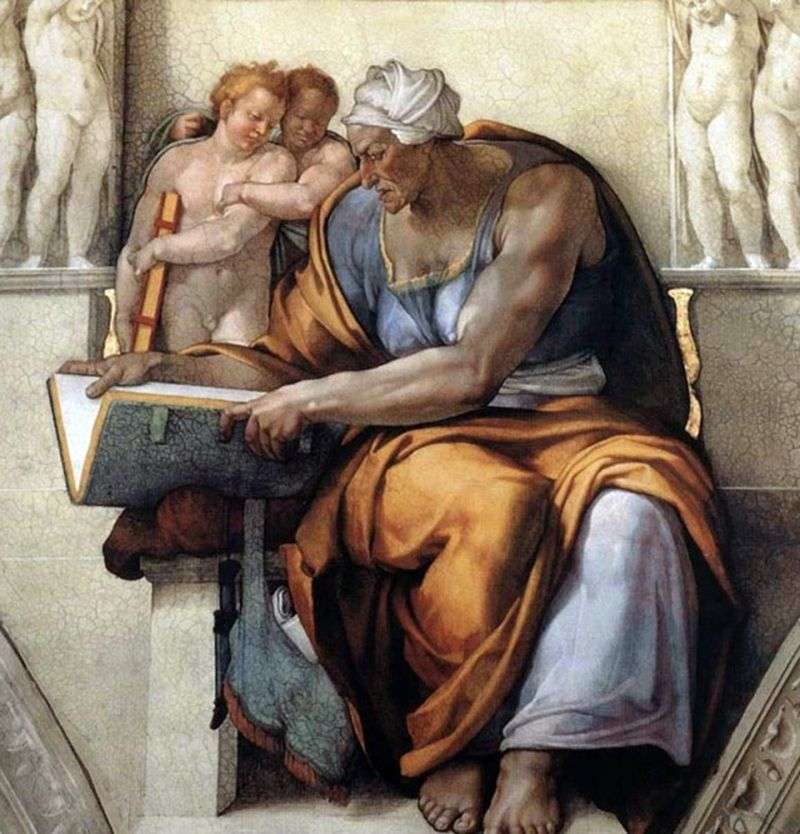 Kuma Sibyl by Michelangelo Buanarrotti
Kuma Sibyl by Michelangelo Buanarrotti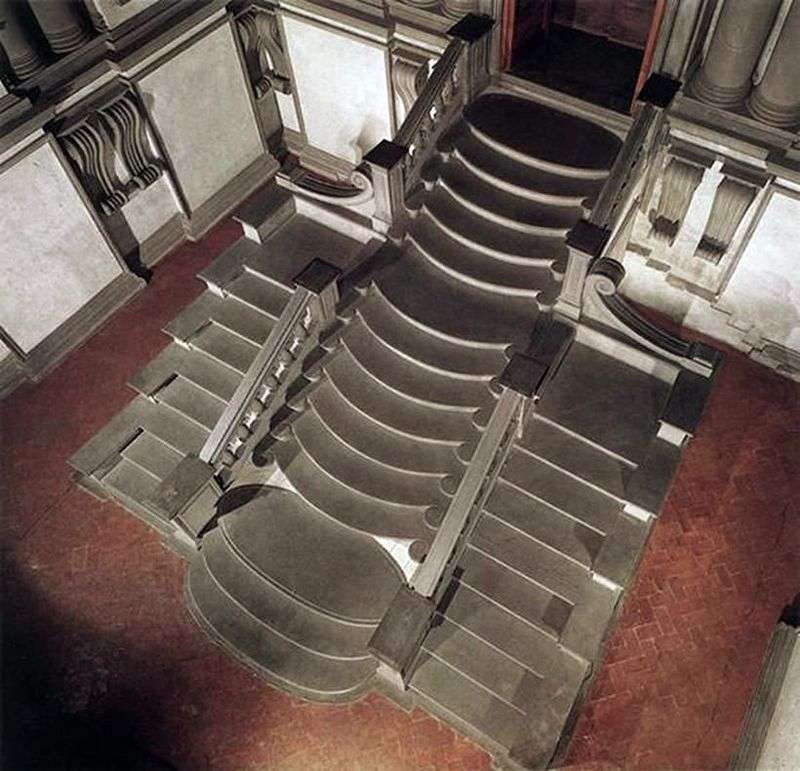 Laurentian Library by Michelangelo Buonarroti
Laurentian Library by Michelangelo Buonarroti